Does Living In A City Cause Autism?
Delve into the real-life perspective on whether living in a city causes autism. Beyond scientific theories, explore the everyday experiences of families in urban environments.
.jpg)
Does Living In A City Cause Autism?
The Urban Environment and Autism
Living in an urban environment has been a topic of interest when studying the factors that may contribute to autism. Researchers have explored the potential relationship between urban living and the prevalence of autism, shedding light on the influence of the urban environment on individuals on the autism spectrum.

The Relationship Between Urban Living and Autism
Studies have shown that there is a correlation between urban living and the likelihood of autism diagnosis. Research suggests that children growing up in urban areas may have a higher risk of developing autism compared to those in rural or suburban settings. Living in a city does not directly cause autism. Autism is a complex neurodevelopmental disorder with a multifactorial etiology, and the urban environment is just one potential contributing factor among many.

Understanding the Influence of the Urban Environment
The urban environment encompasses a variety of factors that may interact and influence individuals with autism. Understanding these influences can provide insights into the challenges faced by individuals on the autism spectrum in urban settings. Here are some key aspects to consider:
- Noise Pollution: Cities are often associated with high levels of noise pollution, such as traffic, construction, and crowded public spaces. Noise pollution can be overwhelming for individuals with autism, who may be more sensitive to auditory stimuli.
- Air Pollution: Urban areas tend to have higher levels of air pollution due to industrial activities, vehicular emissions, and other sources. Research has suggested a potential link between air pollution and autism.
- Crowded Spaces: Urban living often means navigating through densely populated areas, busy streets, and crowded public transportation. For individuals with autism, crowded spaces can be overwhelming and may contribute to sensory overload and anxiety.
- Access to Services and Support: While urban areas typically offer a wide range of services and resources, including specialized support for individuals with autism, accessing these services can sometimes be challenging due to long waiting lists or limited availability. However, urban centers tend to have a greater concentration of autism-related services compared to rural areas.
Understanding the influence of the urban environment on autism is a complex endeavor. Researchers continue to explore these factors to gain a deeper understanding of how the urban environment may impact individuals on the autism spectrum. By recognizing the challenges and potential stressors associated with urban living, we can work towards creating more inclusive and supportive environments for individuals with autism.
Factors in the Urban Environment
Living in an urban environment exposes individuals, including those with autism, to various factors that can potentially impact their well-being. Understanding these factors is crucial in comprehending the influence of the urban environment on autism. Here are some key factors to consider:
Noise Pollution
Urban areas are often characterized by high levels of noise pollution, including traffic, construction, and bustling activities. For individuals with autism, who may be particularly sensitive to auditory stimuli, excessive noise can be overwhelming and contribute to sensory overload. This can lead to heightened stress levels and difficulties with focus and communication.
Air Pollution
Air pollution in urban environments, such as emissions from vehicles and industrial activities, can have adverse effects on overall health, including individuals with autism. Research suggests that exposure to air pollution may be associated with an increased risk of autism spectrum disorder (ASD). The exact mechanisms linking air pollution and autism are still being investigated.
Crowded Spaces
Urban areas are often characterized by densely populated neighborhoods, crowded streets, and public transportation systems. For individuals with autism, navigating through crowded spaces can be challenging due to difficulties with sensory processing, social interaction, and a preference for routine. The overwhelming nature of crowded environments can contribute to heightened anxiety and stress levels for individuals with autism.
Access to Services and Support
While urban areas typically offer a wide range of services and resources, access to these supports for individuals with autism may vary. Some cities may have well-established autism-specific services, including therapy centers, support groups, and educational programs.
However, disparities in access to these resources can exist, particularly in underserved communities. It is crucial to ensure that individuals with autism living in urban environments have equal opportunities to access the support and services they need.
Understanding the impact of these factors in the urban environment is essential for both individuals with autism and their caregivers. By recognizing the challenges associated with noise pollution, air pollution, crowded spaces, and access to services, appropriate strategies can be developed to create a supportive environment for individuals with autism in urban settings.
Potential Impact on Autism
Living in an urban environment can have various potential impacts on individuals with autism. The unique characteristics of cities, such as sensory overload, increased stress levels, and limited access to nature and green spaces, can significantly influence the well-being of those on the autism spectrum.
Sensory Overload and Stimulation
Cities are often characterized by high levels of sensory stimulation, which can be overwhelming for individuals with autism. Noise pollution, a common feature of urban areas, can create a cacophony of sounds that can be distressing and distracting. The constant hustle and bustle, bright lights, and crowded spaces can also contribute to sensory overload, making it challenging for individuals with autism to focus and remain calm.
To mitigate the impact of sensory overload, creating sensory-friendly environments is crucial. This involves reducing unnecessary noise, using soft lighting, and providing quiet spaces where individuals can retreat and regulate their sensory experiences.
Increased Stress Levels
Living in an urban environment can lead to increased stress levels for individuals with autism. The fast-paced nature of cities, along with the constant sensory stimuli, can create a heightened state of anxiety and stress. The pressure to navigate crowded spaces, interact with unfamiliar people, and adhere to rigid schedules can be particularly challenging for individuals with autism.
To address increased stress levels, it is crucial to create support systems and access appropriate services. Urban centers often offer a wide range of specialized services and resources specifically designed for individuals with autism. These can include therapy centers, support groups, and educational programs. Accessing these resources can help individuals with autism and their caregivers manage stress and find the necessary support.
Limited Access to Nature and Green Spaces
One of the potential drawbacks of urban living for individuals with autism is limited access to nature and green spaces. Cities are often characterized by concrete landscapes, with limited opportunities for connecting with nature. This can deprive individuals with autism of the calming and therapeutic benefits associated with natural surroundings.
Research has shown that exposure to nature and green spaces can have a positive impact on mental well-being, reducing stress and promoting relaxation. It is important for individuals with autism to seek out nature-based activities and incorporate them into their routines. Visiting local parks, engaging in gardening, or participating in outdoor recreational activities can provide a much-needed respite from the urban environment.
Understanding the potential impact of the urban environment on individuals with autism is crucial in order to provide appropriate support and create inclusive spaces. By addressing the challenges related to sensory overload, stress levels, and limited access to nature, we can work towards ensuring that urban environments are accommodating and supportive for individuals on the autism spectrum.
Research and Findings
As researchers delve into the influence of the urban environment on autism, numerous studies have been conducted to explore this intricate relationship. Understanding the research findings can shed light on the potential impact of the urban environment on individuals with autism.
Studies on the Urban Environment and Autism
Several studies have aimed to investigate the correlation between living in urban areas and the prevalence of autism. While some studies suggest a potential link between the two, the research findings are not conclusive and often present conflicting results.
A study published in the Journal of Autism and Developmental Disorders examined the association between urban living and autism. The researchers found a slightly higher prevalence of autism in urban areas compared to rural areas. However, it is essential to interpret these findings with caution due to the complex nature of the disorder and the influence of various factors.
Another study explored the impact of air pollution on autism. The researchers observed a potential correlation between exposure to air pollution during pregnancy and an increased risk of autism in children. These findings highlight the importance of considering environmental factors, such as air pollution and city pollution, when examining the urban environment and its potential influence on autism.
Conflicting Results and Limitations
While some studies suggest a potential association between the urban environment and autism, it is crucial to acknowledge the limitations of the research conducted thus far. Conflicting results across studies make it challenging to draw definitive conclusions about the impact of the urban environment on autism.
One limitation is the difficulty in establishing causation. The complex interplay of genetic, environmental, and other factors makes it challenging to isolate the specific influence of the urban environment on the development of autism. Additionally, studies often rely on self-reported data or retrospective analysis, which may introduce biases or inaccuracies.
Furthermore, research findings may be influenced by various factors such as socioeconomic status, access to healthcare, and cultural differences. These factors can vary across different urban areas and populations, further complicating the interpretation of the results.
It is crucial for future research to address these limitations and adopt more rigorous methodologies to provide a clearer understanding of the relationship between the urban environment and autism. By considering the limitations and examining the research findings from multiple perspectives, we can develop a more comprehensive understanding of how the urban environment may influence individuals on the autism spectrum.
Coping Strategies and Support
Living in the urban environment can present unique challenges for individuals with autism. However, there are coping strategies and support systems that can help navigate these difficulties and create a more inclusive and supportive environment. Here are some strategies to consider:
Creating Sensory-Friendly Environments
Sensory overload is a common experience for individuals with autism in urban settings. Creating sensory-friendly environments can help minimize sensory triggers and provide a more comfortable space. Some strategies to achieve this include:
- Designating quiet areas: Establishing designated quiet zones in public spaces, such as libraries or community centers, can provide individuals with autism a refuge from overwhelming stimuli.
- Sensory-friendly modifications: Implementing sensory-friendly modifications in buildings and public spaces, such as reducing harsh lighting, minimizing background noise, and incorporating calming elements, can contribute to a more accommodating environment.
Seeking Out Nature and Green Spaces
Access to nature and green spaces can have a positive impact on individuals with autism. These natural environments offer a break from the hustle and bustle of the urban setting and provide opportunities for relaxation and sensory exploration. Some ways to seek out nature and green spaces include:
- Local parks and gardens: Exploring local parks and gardens can offer a serene and calming setting for individuals with autism. These spaces often provide opportunities for activities like walking, gardening, or simply enjoying the natural surroundings.
- Community nature programs: Participating in community nature programs, such as guided nature walks or outdoor workshops, can allow individuals with autism to engage with nature in a structured and supportive environment.
Accessing Support and Services in Urban Centers
Urban centers often have a range of support and services available for individuals with autism and their caregivers. These resources can help in navigating the challenges of living in an urban environment. Some potential support options include:
- Autism support organizations: Connecting with local autism support organizations can provide access to valuable resources, such as support groups, educational workshops, and advocacy services.
- Therapeutic services: Urban centers typically have a broader range of therapeutic services available, including occupational therapy, speech therapy, and applied behavior analysis (ABA) therapy. These services can help individuals with autism develop skills and cope with the challenges they may face.
By implementing these coping strategies and utilizing the available support systems in urban centers, individuals with autism and their caregivers can work towards creating a more inclusive and accommodating environment. It's important to remember that each person with autism is unique, so finding the strategies and support that work best for them is key.
Summary
In wrapping up this exploration into whether living in a city causes autism, it's crucial to approach the topic with a human touch. While studies may suggest correlations, the lived experiences of families in urban settings paint a more intricate picture.
Cities offer a unique blend of challenges and opportunities for individuals with autism. Environmental factors may play a role, but so do community support, accessible resources, and the diverse interactions that city life brings. It's not a simple cause-and-effect scenario.
Remember, each person's journey with autism is as individual as they are. Rather than dwelling solely on the city as a potential cause, let's celebrate the diversity and resilience of families navigating urban life with autism. Our understanding is continually evolving, and embracing a compassionate, human perspective is key to supporting those affected and fostering inclusive communities.
Sources
Frequently Asked Questions
.jpg)
Autism And Bed Wetting: Unlocking Solutions
Explore the connection between autism and bedwetting and find practical insights and solutions for parents and caregivers. Discover how understanding and support can make a difference in managing this common challenge for children and individuals on the autism spectrum.

Proven Examples of Smart Goals for Students with Autism
Unlock the potential of students with autism through proven examples of SMART goals. Set them up for success!
.jpg)
What is the Sensory Processing Disorder ICD-10 Code?
If you or someone you know has been diagnosed with Sensory Processing Disorder (SPD), you may have heard of the ICD-10 code. In this article, we'll explain what the SPD ICD-10 code is, what it means, and why it's important.

Understanding Vestibular Stimming in Autism
Demystifying vestibular stimming in autism: Understand the impact, strategies, and support for individuals. Uncover the power of self-regulation through stimming.

Do Amish Kids Get Autism?
Explore the prevalence of autism in Amish children and uncover the factors that may contribute to this phenomenon. Delve into the unique characteristics of Amish communities and their impact on autism rates.

Breaking Barriers: Free Sensory Toys for Autism That Make a Difference
Discover life-changing free sensory toys for autism! Unlock the power of sensory play for children with autism.

Famous People Thriving with Autism or Aspergers Syndrome
Discover the extraordinary journeys of famous people thriving with autism and Asperger's syndrome. Unveil the inspiring stories of icons who break stereotypes.

IEP Goals for Autism: Ultimate Guide
Unlock the potential: Constructing meaningful IEP goals for autism to support your child's growth and development. Discover strategies and examples!

Young Celebrities with Autism
Discover inspiring young celebrities with autism and their journeys in entertainment and advocacy.
.jpg)
Autism Hand Posturing: Causes, Types, and Management
Autism hand posturing refers to repetitive and often purposeless movements or postures of the hands and fingers seen in individuals with autism. These movements range from simple hand flapping to more complex finger twisting and tapping.

Distinguishing ADHD vs Autism Stimming
ADHD stimming vs autism stimming: Discover the motivations and characteristics behind these behaviors in individuals.

Addressing Rigid Thinking in Autism
Unlocking flexibility in autism! Discover strategies, therapy, and tools to address rigid thinking for a brighter future.

DSM 6 Release Date Revealed
Unlock the future with DSM-6! Discover the release date and anticipated changes in the mental health landscape.

Why Do Autistic People Rock?
Uncover insights with empathy, exploring the diverse ways rocking serves as a coping mechanism and sensory regulation for individuals on the autism spectrum. Join us in celebrating the beauty of neurodiversity, fostering understanding and appreciation for this distinctive aspect of autistic experience.

Signs Your Toddler Is Not Autistic
Discover reassuring signs that your toddler may not be autistic in this human-centered guide. Explore the joy of your child's unique developmental journey, celebrating their social engagement and communication skills.
.jpg)
Facial Features & Physical Characteristics Of Autism
Some researchers believe that these physical characteristics are related to the underlying neurological differences in individuals with autism.
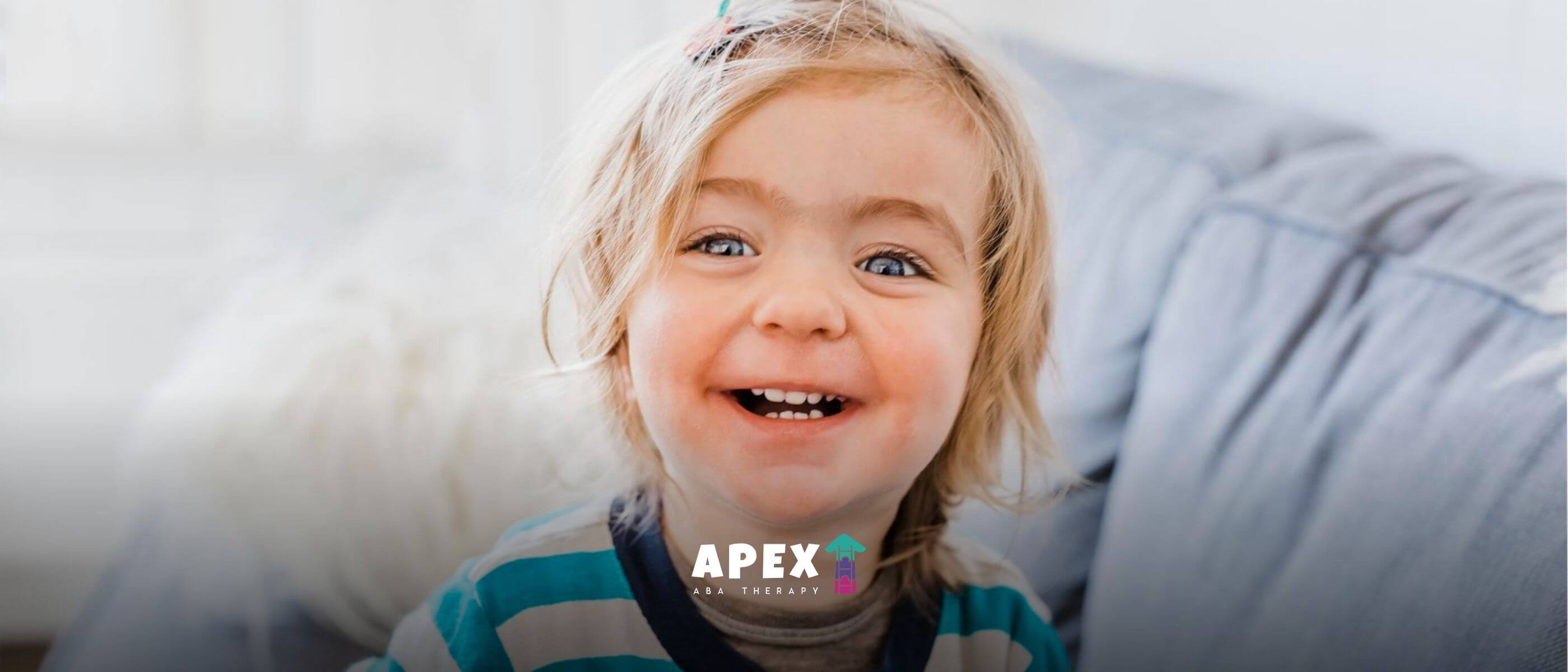
The Three Main Causes of Autism: Exploring Genetics, Environment, and Brain Differences
Autism is influenced by genetics, environmental factors, and brain differences. Learn how these three causes contribute to the development of the condition.

What are the Common Behaviors of Autism?
Autism behaviors can vary widely. Learn about the most common traits, from social difficulties to sensory sensitivities, and how ABA therapy can support progress.

What Age is Too Late for ABA Therapy?
It’s never too late to start ABA therapy. Discover how children, teens, and adults can still make meaningful progress with personalized ABA support.

Is In-Home ABA the Right Fit for Your Child? Here’s What You Need to Know
In-home ABA therapy offers a tailored approach to support your child’s development. Learn how it can improve key skills like communication, social interaction, and more.

How Families Can Make ABA Therapy a Positive and Successful Experience
Learn how families can ensure ABA therapy is a positive, successful experience. Discover tips for involvement, consistency, and support to make ABA effective.

Can a Child Have Autism and Still Talk Normally?
Can a Child Have Autism and Still Talk Normally?

What Are the Red Flags for Autism in a 2-Year-Old?
Autism Red Flags in 2-Year-Old Children | Apex ABA

Is Autism a Lifelong Condition?
Is Autism a Lifelong Condition? Understanding The Journey

Best Age to Start ABA Therapy & What Parents Should Know
Best Age to Begin ABA Therapy for Children | Apex ABA

What’s the Difference Between High-Functioning Autism and Asperger’s?
Difference Between High-Functioning Autism and Asperger’s

ABA Therapy Enhancing Social Skills: A Key to Improved Communication and Interaction for Children with Autism
How ABA Therapy Helps Children Build Social Skills

Misconceptions About ABA Therapy: Clearing Up the Myths
Common Misconceptions About ABA Therapy | Apex ABA

What Does It Mean to Be “On the Spectrum”?
What Does It Mean to Be on the Autism Spectrum? | Apex ABA
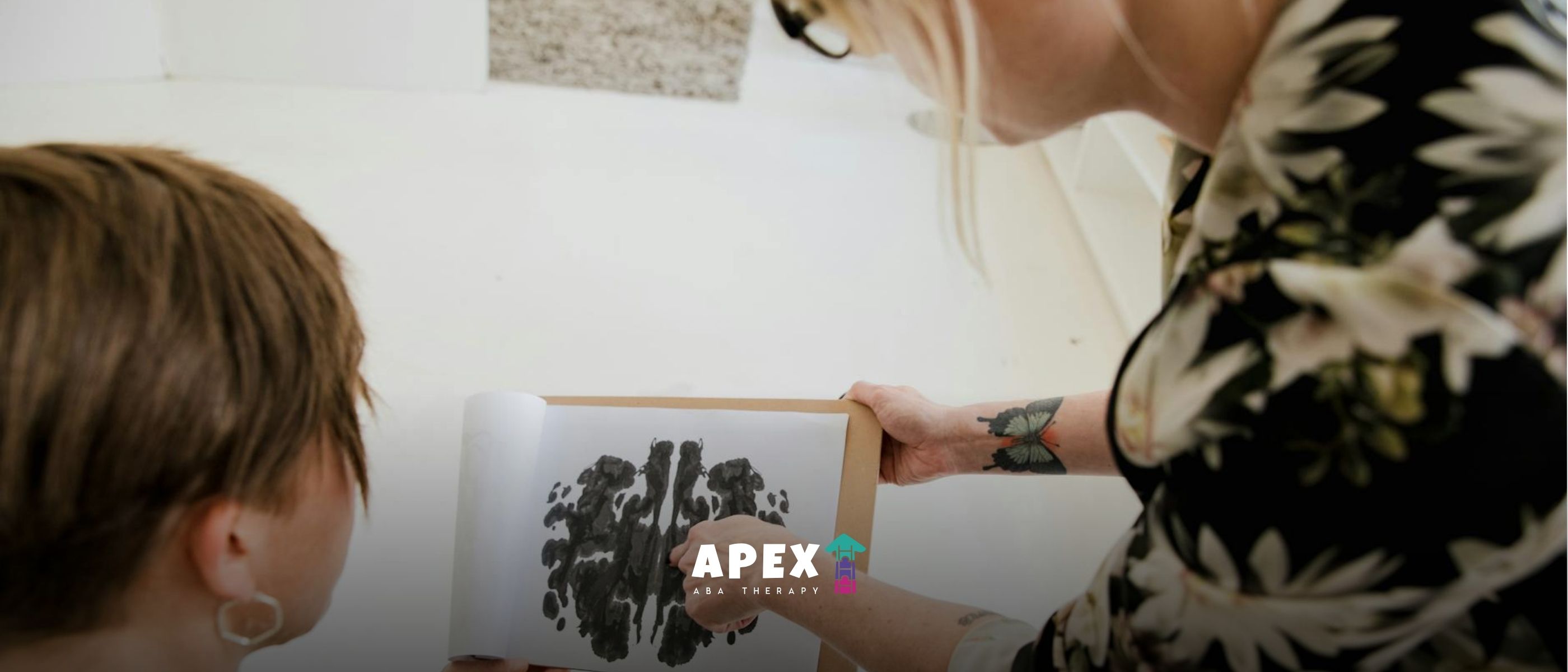
Understanding the Power of Functional Behavior Assessment ABA
Effective ABA Techniques for Behavioral Intervention

Discover How ABA Helps ADHD in Your Child’s Life
How ABA Therapy Helps Children with ADHD | Apex ABA

Life-Changing ABA Therapy Case Studies You Need to Know
Real Success Stories from ABA Therapy Journeys | Apex ABA

Can Children “Outgrow” Autism?
Can Children Outgrow Autism? Understanding the Facts
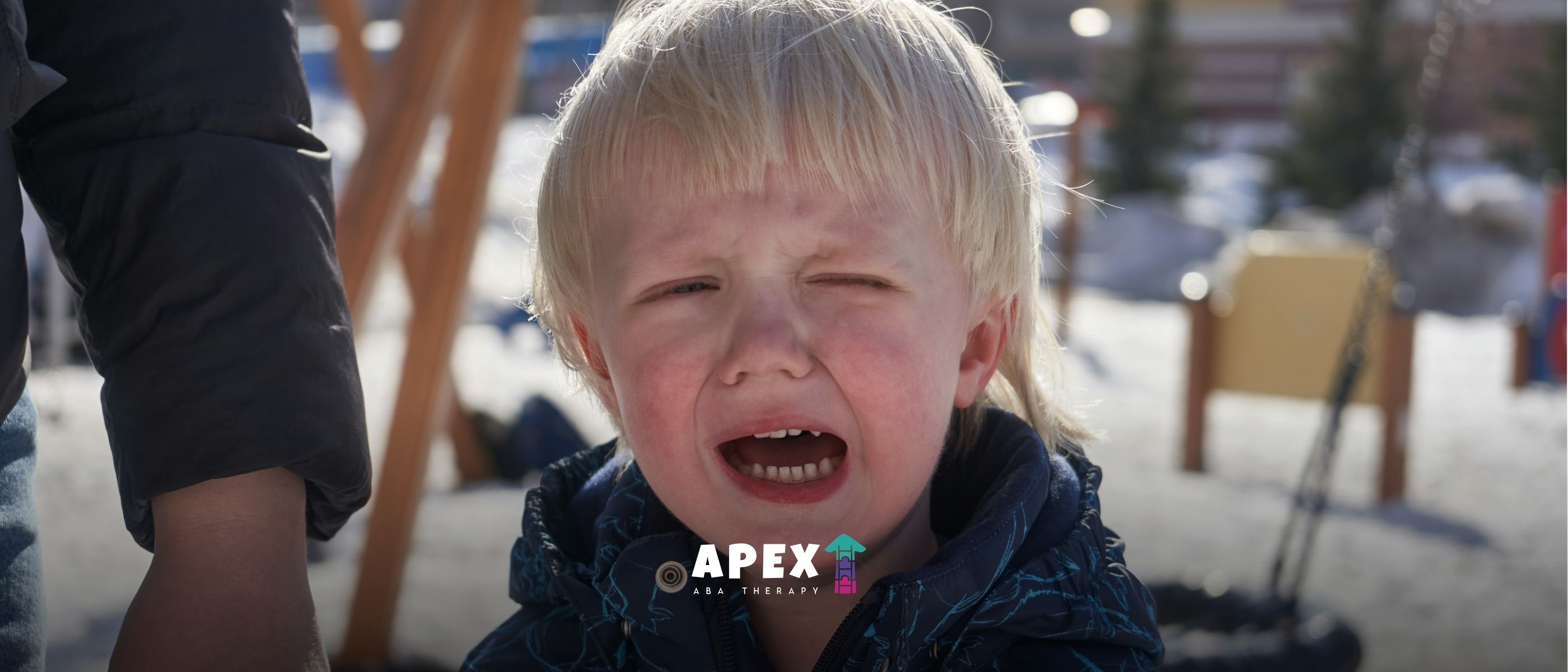
Is Autism a Mental Illness or a Developmental Disorder?
Mental Illness or Developmental Disorder Explained

Is Autism More Common in Boys Than Girls?
Autism in Boys vs Girls: What the Research Reveals

What is the Difference Between Autism and Sensory Processing Disorder?
Autism vs Sensory Processing Disorder Differences | Apex ABA

What's the Difference Between Autism and Speech Delay?
Autism vs Speech Delay & Key Differences Explained | Apex
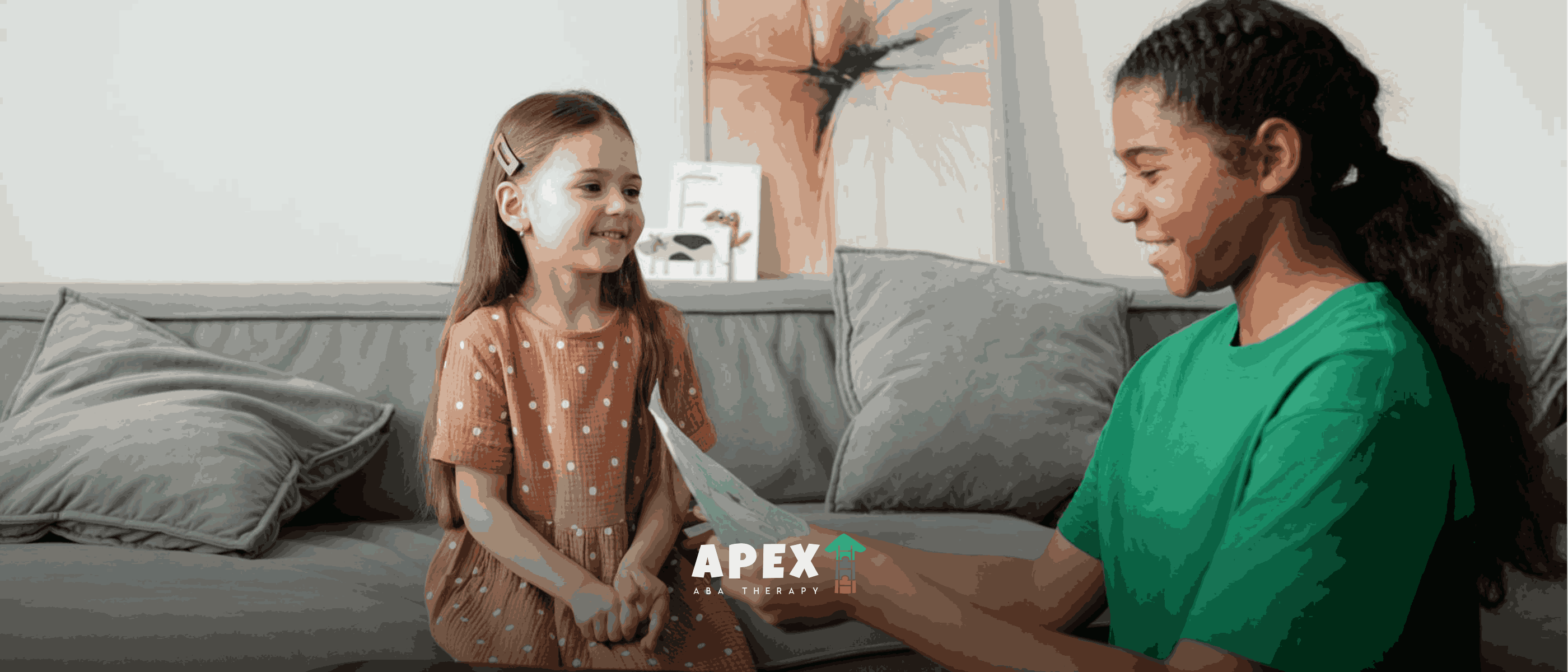
ABA Therapy in North Carolina: A Complete Guide for Families
Learn everything about ABA therapy in North Carolina, including services, costs, insurance coverage, and how to choose the best ABA provider in North Carolina.

ABA Therapy vs Preschool: Making the Right Choice Explained
Learn the key differences between ABA therapy and preschool to help you choose the best option for supporting your child’s early learning and development.

Which Personality Type Is Most Likely to Be Autistic?
Which Personality Type Is Most Likely to Be Autistic? | Apex ABA

Why Consistency Matters: What Happens If ABA Therapy Ends Prematurely
What Happens If ABA Therapy Is Stopped Too Early? | Apex ABA

How Can You Gain an Autistic Person’s Attention? Tips for Meaningful Connection
How Can You Gain an Autistic Person’s Attention?

Sensory Sensitivity and Sixth Sense: What Autism Research Shows
Do Autistic People Have Sixth Sense? | Apex ABA
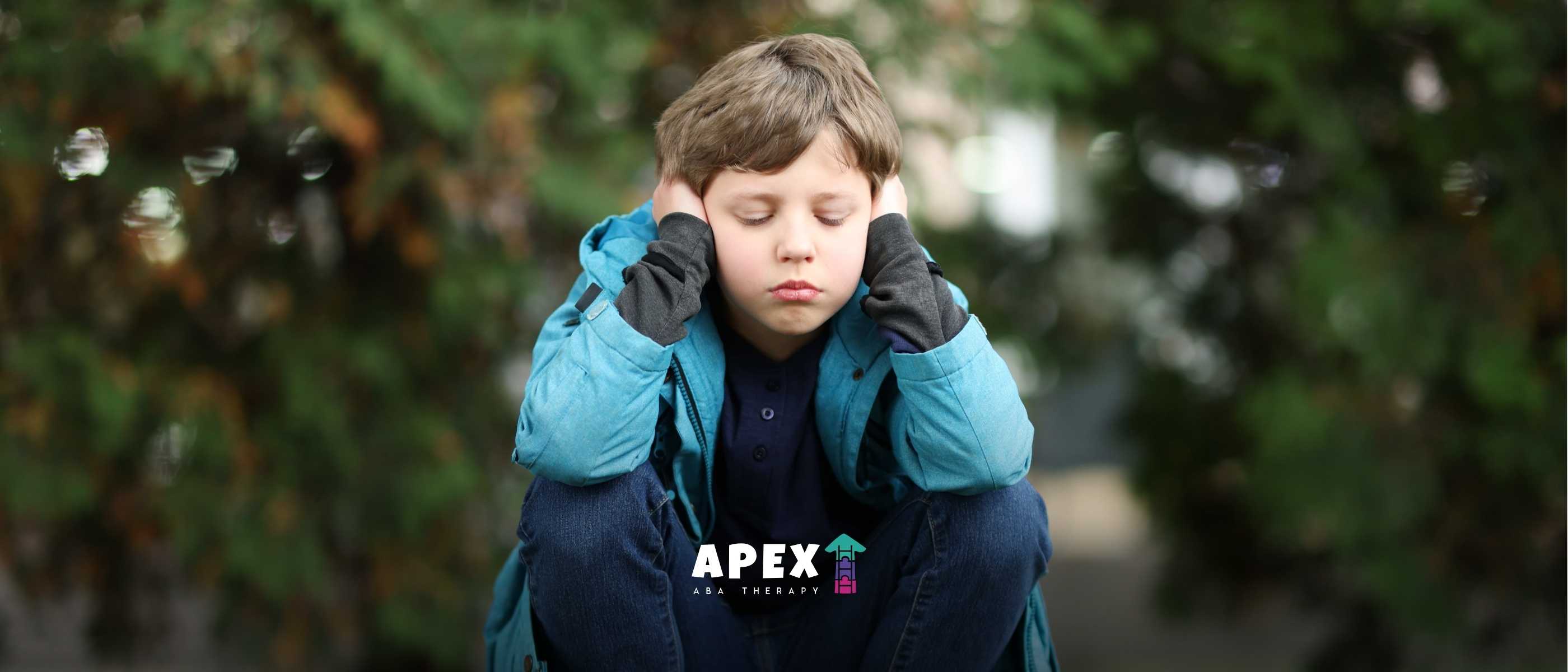
What Happens If Autism Is Left Untreated?
Can Autism Get Worse If Untreated? | Apex ABA

What Not To Do With An Autistic Child: Avoid These 10 Mistakes
What Not To Do With An Autistic Child? | Apex ABA

Coping with Regressive Autism: Tips for Parents
What is Regressive Autism? | Apex ABA

Do Autistic Kids Live with Parents Forever? Here’s the Reality
Do autistic kids live with parents forever? Discover the facts about independence and living arrangements in autism with expert-backed insights.

Red Flags in ABA Therapy: What Parents Must Watch For
What are the red flags in ABA therapy? Learn to identify warning signs for safe, effective autism treatment in this blog.

Can You Go from Level 3 Autism to Level 1? Is It Possible?
Can you go from level 3 autism to level 1? Learn about progress, therapy, and support options with expert help from Apex ABA.

Autism vs Introversion: How to Tell the Difference
Is it autism or just introversion? Learn the key differences and signs with expert insights from Apex ABA.
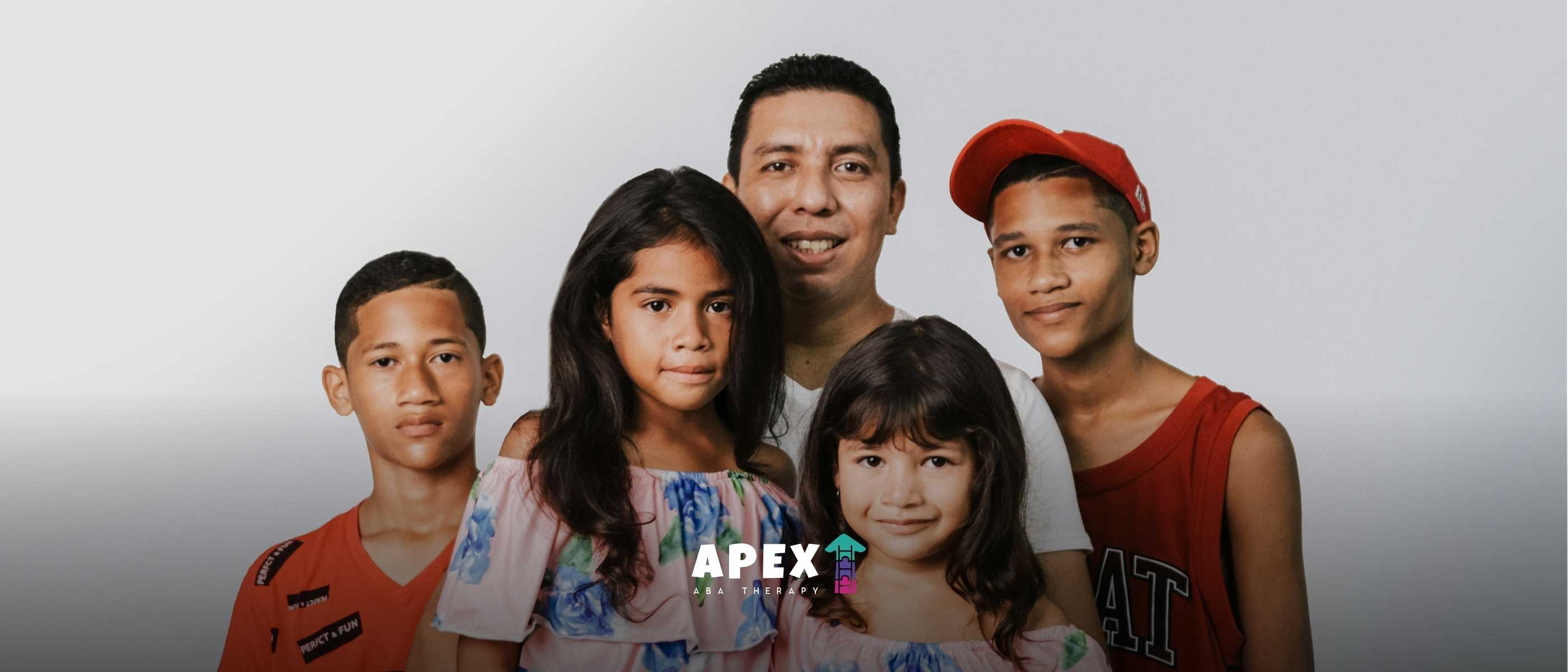
ABA for Managing Transitions: Tips to Ease Change for Kids
Learn how ABA for managing transitions helps children with autism handle change smoothly.

Understanding the 7 Dimensions of ABA for Better Outcomes
Discover the 7 Dimensions of ABA and how they can lead to better outcomes.

5 Unique Autistic Love Languages You Should Know About
Discover the 5 unique autistic love languages that can enhance your relationships.

Transforming Futures: Improving Lives of Kids with Autism
Discover how innovative strategies are focused on improving lives of kids with autism.

ABA Therapy Techniques for Addressing Repetitive Behaviors in Autism
Harnessing ABA Strategies to Tackle Repetitive Behaviors in Autism

The Role of ABA Therapy in Enhancing Communication Skills
Transforming Communication for Children with Autism Through ABA Therapy

How ABA Therapy Supports Effective Communication in Nonverbal Children
Unlocking Speech Through ABA: Transformative Paths for Nonverbal Children

How to Help Your Child Transfer Skills Learned in ABA Therapy to Real Life
Unlocking Real-World Success for Children in ABA Therapy

How ABA Therapy Helps Children Develop Better Organizational Skills
Empowering Children with ABA Therapy for Enhanced Organizational Skills

The Importance of Creating a Structured Routine in ABA Therapy
How Structured Routines Transform ABA Therapy for Autism

The Role of ABA Therapy in Developing Conflict Resolution Skills
How ABA Therapy Transforms Conflict Resolution Competence

The Importance of Generalization in ABA Therapy for Autism
Unraveling the Role of Generalization in Enhancing ABA Therapy Outcomes

Why ABA Therapy is Crucial for Parents of Children with Autism
The Transformative Impact of ABA Therapy on Families with Autistic Children

How to Involve Parents in the ABA Therapy Process
Maximize Parent Engagement in ABA Therapy for Better Outcomes

What are the Core Principles of ABA Therapy?
Exploring the Cornerstones of Applied Behavior Analysis

Why Communication is Key in ABA Therapy for Autism
The Crucial Role of Communication in ABA Therapy for Autism

Why ABA Therapy Works for Children with Autism Regardless of Severity
Effective ABA Interventions for All Levels of Autism

Why It’s Important to Maintain a Balanced Approach to ABA Therapy
Balancing Effectiveness and Ethics in ABA Therapy

The Role of ABA Therapy in Developing Adaptive Behavior Skills
Exploring How ABA Therapy Transforms Lives

The Benefits of Combining ABA Therapy with Speech Therapy
Maximizing Development with Integrated Therapy Approaches

What to Expect During an ABA Therapy Session
Demystifying ABA Therapy Sessions: A Comprehensive Overview

How ABA Therapy Enhances Cognitive Functioning in Children with Autism
Exploring the Influence of Applied Behavior Analysis on Autism Cognition

How ABA Therapy Helps Children with Autism with Transitions Between Activities
Easing Transitions for Children with Autism: The Role of ABA Therapy

How to Foster Cooperation Between Parents and Therapists in ABA Therapy
Building Effective Partnerships in ABA Therapy

The Role of Positive Reinforcement in ABA Therapy
Exploring the Impact of Positive Reinforcement in Modern ABA Therapy

Why ABA Therapy is Effective for Children of All Ages
Understanding the Reach and Impact of ABA Therapy Across Age Groups

How to Support Your Child’s Emotional Growth with ABA Therapy
Harnessing ABA Therapy for Enhancing Emotional Development in Children with Autism

The Role of ABA Therapy in Enhancing Peer Relationships for Children with Autism
Harnessing ABA Therapy to Boost Social Connections Among Autistic Children

How to Overcome Common Challenges in ABA Therapy
Navigating Hurdles in ABA Therapy: Strategies and Solutions

How to Manage Behavioral Expectations with ABA Therapy
Understanding Applied Behavior Analysis in Behavioral Management

How ABA Therapy Promotes Emotional Regulation in Children with Autism
Unlocking Emotional Balance: ABA Therapy's Role in Autism

How ABA Therapy Improves Social Skills in Children with Autism
Harnessing ABA Therapy to Enhance Social Competency in Autistic Children

The Role of ABA Therapy in Classroom Success for Children with Autism
Harnessing ABA for Academic and Social Growth in Autism

The Importance of Evaluating and Revising ABA Therapy Goals Regularly
Regular Evaluations: The Cornerstone of ABA Therapy Success

How to Choose the Right ABA Therapy Program for Your Child
Finding the Perfect ABA Therapy Fit for Your Child

The Role of Behavior Analysts in Implementing ABA Therapy
Understanding the Vital Contributions of Behavior Analysts in ABA Therapy

The Role of RBTs (Registered Behavior Technicians) in ABA Therapy
A Closer Look at the Essential Work of RBTs in ABA Therapy

What Makes ABA Therapy Effective for Different Learning Styles?
Unraveling the Flexibility and Effectiveness of ABA Therapy

Understanding the Importance of Data Collection in ABA Therapy
The Role of Data in Shaping Effective ABA Therapy

How ABA Therapy Helps with Toilet Training in Children with Autism
Unlocking Independence: ABA's Role in Autism Toilet Training

The Importance of Encouraging Natural Play in ABA Therapy
Revolutionizing ABA Therapy with Natural Play

How to Make the Most of ABA Therapy at Home
Enhancing ABA Therapy Practices Within Your Home

How to Make ABA Therapy Fun and Engaging for Children with Autism
Transforming ABA Therapy into a Fun Learning Journey

The Role of ABA Therapy in Addressing Verbal and Nonverbal Communication in Autism
Enhancing Communication Skills in Autism Through ABA Therapy

Understanding the Role of Family in ABA Therapy for Autism
The Crucial Impact of Family Engagement in Autism Therapy

How to Handle Setbacks and Challenges in ABA Therapy
Navigating Difficulties and Setbacks in ABA Therapy for Children

How ABA Therapy Can Help Children Build Stronger Relationships with Peers
Unpacking the Influence of ABA Therapy on Peer Relationships in Children

Understanding the Concept of Shaping in ABA Therapy
Demystifying Shaping Techniques in Applied Behavior Analysis

How ABA Therapy Enhances Independent Living Skills in Autism
Unlocking Independence: The Role of ABA Therapy in Autism
.jpg)
90+ Reading Statistics, Facts and Demographics
In this article, we will dive into 60 reading statistics that shed light on the importance of reading and its impact on different aspects of life.



